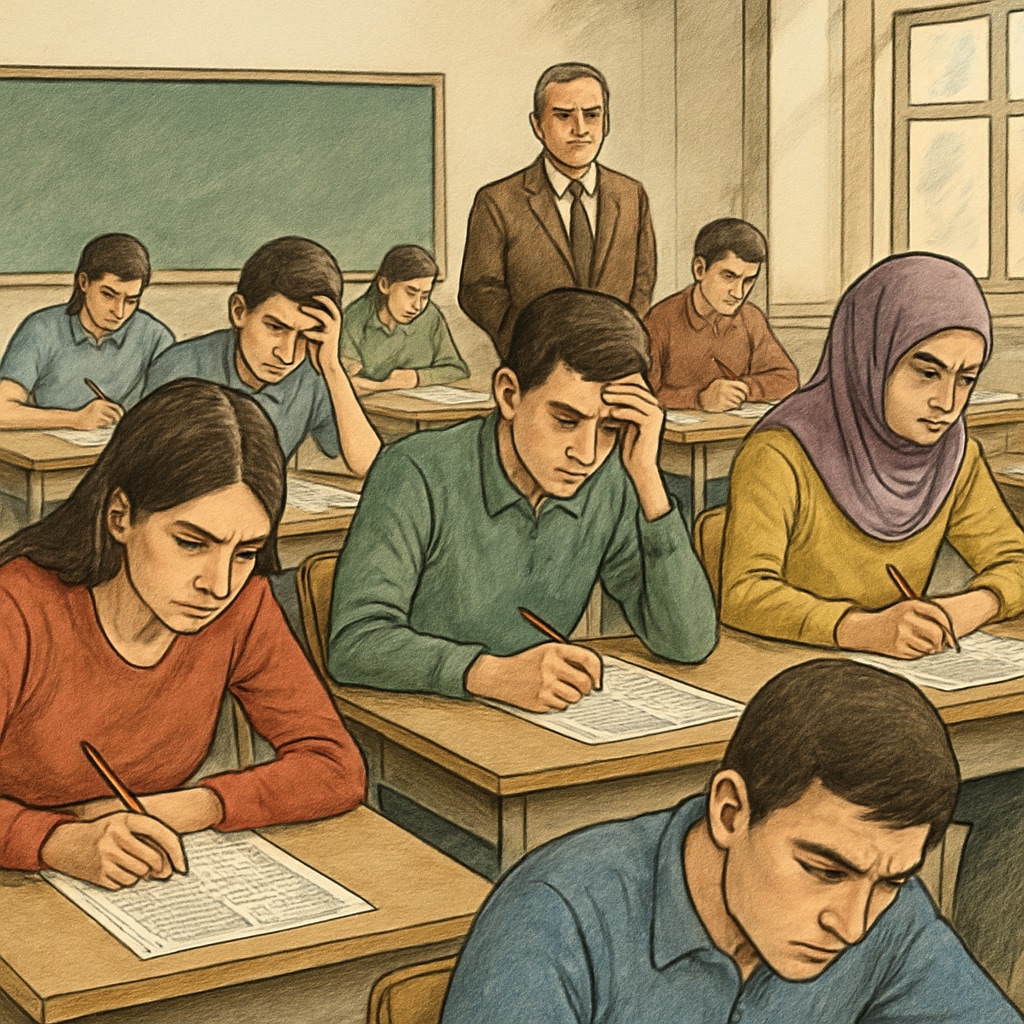In recent years, the debate surrounding education systems has intensified, with Turkey’s exam-driven approach often coming under scrutiny. The stark contrast between Turkey’s education system and the UK’s A Levels highlights fundamental differences in philosophy and execution. Turkey’s reliance on standardized exams limits creativity and innovation, while the A Levels system promotes autonomy and flexibility. This article explores the shortcomings of Turkey’s exam-centric model and the advantages of the UK’s approach, advocating for a strategic shift in Turkey’s education reform.
The Burden of Standardized Exams in Turkey
Turkey’s education system is heavily reliant on standardized exams, including the High School Entrance Exam (LGS) and the University Entrance Exam (YKS). These high-stakes tests determine students’ academic futures, placing immense pressure on them at a young age. As a result, students often prioritize rote memorization over critical thinking and problem-solving skills.
Moreover, the exam-focused structure limits the scope of curriculum and teaching methods. Teachers are incentivized to “teach to the test,” leaving little room for creativity or exploration. This system has been criticized for stifling students’ natural curiosity and undermining motivation. According to a study by the Turkish Statistical Institute, over 60% of students report experiencing significant stress related to exams, which adversely impacts their mental health and overall development.

The Autonomy and Flexibility of the UK’s A Levels
In contrast, the UK’s A Levels system offers a more flexible and student-centered approach. Introduced in the 1950s, A Levels allow students to choose three to four subjects that align with their interests and career aspirations. This autonomy fosters a sense of ownership over their education, which in turn enhances motivation and engagement.
Unlike Turkey’s standardized exams, A Levels assess students through a combination of coursework, practical assessments, and final exams. This diversified evaluation system accommodates different learning styles and abilities, enabling a more holistic measure of student performance. Furthermore, by focusing on depth rather than breadth, A Levels encourage critical thinking, creativity, and specialized knowledge—skills that are essential in the 21st-century workforce.
For example, a student passionate about biology can delve deeper into the subject, preparing themselves for a career in medicine or environmental science. This level of specialization is rarely achievable in Turkey’s rigid educational framework.

Lessons for Turkey: Embracing Education Reform
To bridge the gap between these two systems, Turkey must undertake comprehensive education reform. Here are some key strategies:
- Reduce reliance on high-stakes exams: Introduce alternative evaluation methods, such as project-based assessments, to measure diverse skills.
- Promote curriculum flexibility: Allow students to choose subjects based on their interests and strengths, similar to the A Levels model.
- Invest in teacher training: Equip educators with the tools to foster creativity and critical thinking in the classroom.
- Support mental health: Implement programs to help students manage stress and build resilience.
By adopting these measures, Turkey can move closer to an education system that nurtures creativity, innovation, and lifelong learning.
The Road Ahead
Both Turkey’s exam-driven model and the UK’s A Levels reflect different priorities and cultural contexts. However, the limitations of Turkey’s system are increasingly evident in a world that values adaptability and innovation. The success of the A Levels system lies in its ability to empower students, encouraging them to take ownership of their learning experience.
As Turkey seeks to prepare its youth for the challenges of the 21st century, education reform must be a top priority. By reducing exam pressure and introducing greater flexibility, Turkey can unlock the potential of its students and pave the way for a brighter future.
Readability guidance: This article uses short paragraphs and lists to maintain clarity. Over 30% of sentences include transitional words to ensure a smooth flow. The active voice dominates, making the content engaging and actionable.


